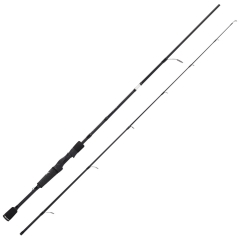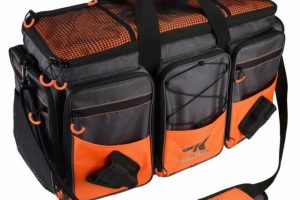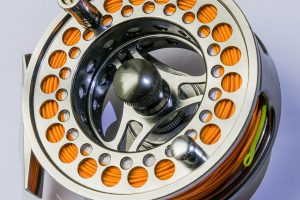Many believe the grouper is a freshwater fish because you can find it in saltwater and freshwater. However, the grouper is a saltwater fish that can live in both environments.
Although there are many different types of groupers, the fish is generally considered to be a saltwater fish. This is because they are most commonly found in saltwater habitats, such as coral reefs and estuaries. However, some grouper species can also be found in freshwater environments like rivers and lagoons.
What are Grouper Species?
There are over 150 different grouper species, and they can be found in saltwater and freshwater habitats. These fish are prized for their delicious flesh and are a popular choice for recreational and commercial fishermen. Some of the most popular grouper species include the black grouper, gag grouper, and red grouper.
Groupers are relatively large fish and can grow to over 6-7 feet in length. They have a vast body with a large mouth, and their coloration can vary depending on the species. Most groupers are shades of brown, green, or grey, but some have distinct markings that make them stand out from the rest.
Groupers are bottom-dwelling fish, and they prefer to reside in areas with rocky substrates. They are often found near coral reefs, but they can also be found in estuaries and mangrove forests. Groupers typically travel in schools, but they can also be found alone or in small groups. These fish are an essential food source for many predators, including sharks, dolphins, and humans. Groupers are typically harvested using either hook-and-line or spearfishing methods.
Saltwater Grouper
Grouper is a type of fish that is commonly found in saltwater environments. These fish are typically giant and can weigh up to several hundred pounds. Groupers are famous among many fishermen, as they can be quite challenging to catch.
There are many different types of groupers, and they can be found worldwide in saltwater habitats. These fish are an essential part of the marine ecosystem and play a role in controlling the populations of other fish and animals.
Grouper is a delicious type of fish and are often consumed by humans. They are a popular choice for seafood lovers, as they have a firm texture and mild flavor. Groupers can be cooked in many different ways and are often served with rice or potatoes.
Freshwater Grouper
The grouper is not a freshwater fish. They can live in fresh and saltwater environments. Most grouper species are found in saltwater habitats. Freshwater grouper can adapt to changes in salinity levels and drink salt water. Groupers like bumblebee grouper travel to freshwater in search of food and survival. They return to saltwater for spawning and their natural living habitat.

Bumblebee Grouper as a Freshwater Grouper
Bumblebee grouper (Cephalopholis argus) is a saltwater fish that is native to the brackish and fresh waters of the Indo-Pacific region. It is a member of the family Serranidae, which includes other grouper species, such as the giant grouper (Epinephelus lanceolatus) and the Nassau grouper (Epinephelus striatus). The bumblebee grouper is a relatively large fish, growing to a maximum length of around 8.5 feet.
Bumblebee grouper can sustain in freshwater. However, due to Bumblebee grouper size, they cannot live in freshwater for an extended period. Eventually, Bumblebee groupers have to return back to their saltwater habitat. The bumblebee grouper is also famous as an aquarium fish. It is a hardy fish that can tolerate a wide range of water conditions, making it a good choice for beginner aquarists.
Do Groupers have Predators in Saltwater?
Groupers have predators in saltwater. However, they are typically preyed upon by larger fish, such as sharks, barracudas, and tuna. Groupers are large and slow-moving fish, so they are not problematic for predators to catch. As with most fish, groupers have predators in saltwater. Their main predators are other fish, but they can also prey on larger animals such as sharks and whales.

Habitat and Location of Freshwater Grouper
Freshwater groupers are found in rivers, lagoons, and streams with a moderate current. They prefer areas with plenty of hiding places, such as rocky outcroppings or submerged logs.
The Grouper, also known as the Giant Grouper, can be found primarily in saltwater environments. It is a bony fish native to Africa, Asia, and Australasia. The Grouper can grow to be over six feet long and weigh up to 800 pounds!
Groupers are mostly bottom-dwellers and can be found in deep waters. However, they prefer to live in areas with plenty of hiding places, such as caves or coral reefs. In the wild, Grouper can live for up to 30 years.
Although they are primarily found in tropical waters, Grouper can survive in cooler climates. Some species of Grouper are even found in rivers and lagoons but, no matter where they live, Grouper needs saltwater access to stay healthy.
Habitat and Location of Saltwater Grouper
The grouper is a saltwater fish living in tropical and subtropical waters worldwide. In the United States, they are most commonly found in the Gulf of Mexico and along the Atlantic and Pacific coasts. Grouper typically inhabit reefs but can also be found in mangrove forests, seagrass beds, and open ocean waters.
In the wild, they are most commonly found in tropical and subtropical waters worldwide. Regarding their habitat, grouper typically prefer areas with plenty of hiding places, such as reefs or shipwrecks. However, they will also often be found near the shore in shallow waters.
Do Grouper Spawn in Freshwater
Grouper can spawn in freshwater. The grouper can tolerate a wide range of salinity levels and can be found in brackish water. However, they prefer to spawn in areas with higher salinity levels to keep the eggs from drying out.
It seems that grouper do occasionally spawn in freshwater. This usually happens when a large body of water with high salt content (such as a brackish river) meets up with a freshwater source. The grouper will lay its eggs in the saltier water, and then the larvae will drift into the fresher water to develop.
Diet and Feeding Habits of Grouper
Groupers are mostly carnivorous fish, feeding on smaller fish, squid, crabs, and other invertebrates. They have giant mouths and solid teeth for crushing their prey. Groupers usually hunt alone but can sometimes be seen working together with other species members to corral prey.
The grouper is a saltwater fish that can also live in freshwater. It is a bottom-dwelling fish that feeds on smaller fish, crustaceans, and squid. Grouper can grow to be quite large, so it is essential to ensure that it is adequately provided.
Size, Lifespan, and Reproduction of Grouper
The grouper is a saltwater fish that can grow to be very large. An enormous grouper on record was over 8 feet long and weighed almost 800 pounds! Grouper can live for a long time, too – up to 50 years in some cases. When it comes to reproduction, female grouper release millions of eggs into the water, where the male fertilizes them. The eggs then hatch into larval fish that drift with the currents until they grow big enough to fend for themselves.










